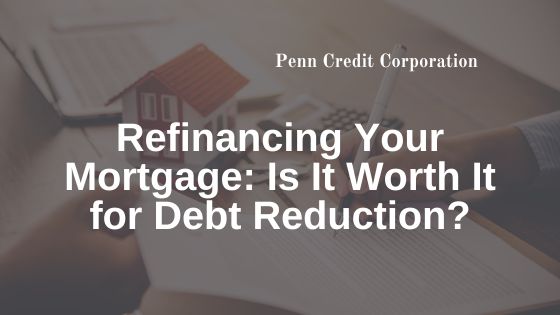Refinancing a mortgage can be an effective strategy for reducing debt, but it’s essential to understand when and how it can benefit your financial situation. Refinancing might provide relief if you’re looking to lower monthly payments, consolidate debt, or tap into your home’s equity. However, it’s not always the best solution for everyone. Here’s a closer look at how mortgage refinancing works and whether it’s worth considering for debt reduction.
What Is Mortgage Refinancing?
Mortgage refinancing involves replacing your existing home loan with a new one to take advantage of better terms, such as a lower interest rate, a shorter loan term, or different repayment conditions. Depending on your goals, refinancing can help reduce monthly payments or free up cash by accessing home equity.
There are two primary types of refinancing:
- Rate-and-Term Refinancing: This option allows you to refinance your existing mortgage to get a lower interest rate or change the loan term (such as moving from a 30-year loan to a 15-year loan).
- Cash-Out Refinancing: This option allows you to borrow against the equity you’ve built up in your home. Essentially, you take out a new loan for more than what you currently owe, and you receive the difference in cash, which can be used to pay off debt.
How Refinancing Can Help With Debt Reduction
- Lowering Monthly Mortgage Payments If your goal is to reduce your overall debt burden, refinancing to a lower interest rate can decrease your monthly mortgage payments. By freeing up cash each month, you can allocate more money toward paying off high-interest debt, such as credit cards or personal loans. This could give you financial breathing room and allow for faster debt repayment without dramatically changing your lifestyle.
- Consolidating High-Interest Debt One of the most appealing aspects of refinancing for debt reduction is the ability to consolidate high-interest debt into a lower-interest mortgage loan. If you have credit card balances or personal loans with double-digit interest rates, consolidating them into your mortgage through a cash-out refinance can potentially save you hundreds or even thousands of dollars in interest payments over time.
- Using Home Equity to Pay Off Debt Cash-out refinancing allows you to access the equity in your home and use that cash to pay off other debts. If you’ve built up significant equity (the difference between your home’s value and what you owe), you can tap into that value to pay off high-interest debts. However, this strategy can be risky, as it converts unsecured debt (like credit card debt) into secured debt, meaning your home is on the line if you fail to make payments.
When Refinancing Might Not Be the Best Option
- Closing Costs Refinancing comes with closing costs, which can range from 2% to 5% of the loan amount. These fees include appraisal fees, title search fees, and other charges associated with securing a new loan. If the savings from refinancing aren’t enough to offset the closing costs, refinancing might not be worth it.
- Extending the Loan Term Refinancing to lower your monthly payments might sound appealing, but if it means extending your loan term (such as moving from a 15-year loan back to a 30-year loan), you could end up paying more in interest over the long term. While this can reduce your short-term debt burden, it might cost you more in the future.
- Risk of Losing Your Home Converting unsecured debt into a secured loan through cash-out refinancing can pose a significant risk. If you experience financial hardship down the road and cannot make your mortgage payments, you could face foreclosure. It’s important to carefully weigh this risk before using home equity to pay off other debts.
- Credit Score Impact If your credit score has declined since you took out your original mortgage, you might not qualify for the lower rates that would make refinancing beneficial. In such cases, it may not be worth refinancing, as higher interest rates could outweigh the potential savings.
When Is Refinancing Worth It for Debt Reduction?
Refinancing may be worth it for debt reduction if:
- You can secure a significantly lower interest rate.
- You plan to stay in your home long enough to recoup the closing costs.
- You have substantial equity in your home that can be used to consolidate high-interest debt.
- You have a solid repayment plan in place to avoid adding more debt after the refinance.
If you meet these criteria, refinancing could be a powerful tool to reduce your overall debt and improve your financial outlook.
Conclusion
Refinancing your mortgage can offer valuable opportunities for reducing debt by lowering monthly payments, consolidating high-interest debt, or accessing home equity. However, it’s crucial to weigh the benefits against the risks and costs, such as closing fees, loan terms, and the potential for losing your home. Before deciding to refinance, carefully assess your financial situation and long-term goals to ensure it’s the right move for your debt reduction strategy.

